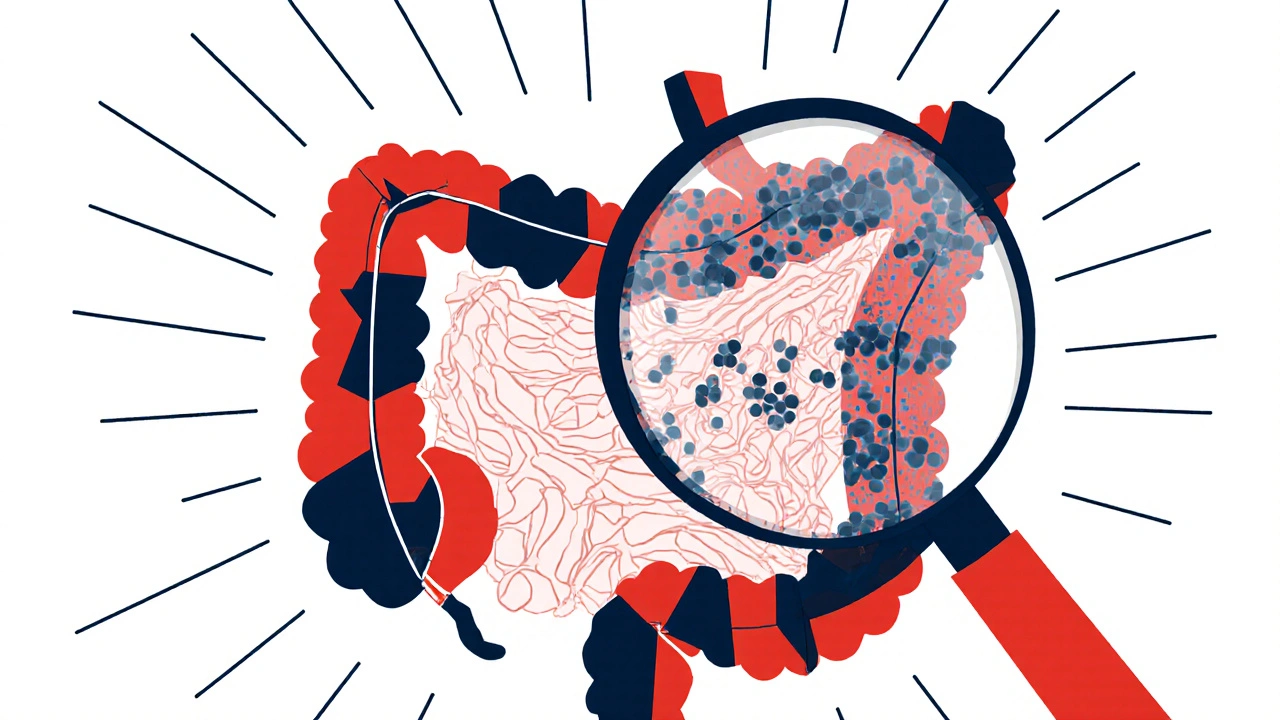SEARCH
Collagenous Colitis: Symptoms, Causes, and What You Can Do
When you have collagenous colitis, a rare form of inflammatory bowel disease where a thick layer of collagen builds up in the colon lining, leading to chronic watery diarrhea. It’s a type of microscopic colitis, meaning you won’t see damage on a regular scope—you need a biopsy to confirm it. Also known as lymphocytic colitis when immune cells dominate instead of collagen, this condition affects mostly middle-aged and older adults, especially women.
Unlike Crohn’s or ulcerative colitis, collagenous colitis doesn’t usually cause bleeding or severe pain. But the constant diarrhea—sometimes up to 10 times a day—can wreck your sleep, your confidence, and your daily routine. What triggers it? No one knows for sure, but it’s often linked to autoimmune reactions, NSAIDs like ibuprofen, thyroid disease, or even certain foods like dairy or caffeine. Some people notice it pops up after starting a new medication. And because it’s rare, many doctors miss it at first, thinking it’s just irritable bowel syndrome.
Diagnosis requires a colon biopsy, which shows the telltale collagen band under the microscope. Treatment starts simple: stop NSAIDs, cut out trigger foods, and try bismuth subsalicylate (Pepto-Bismol), which helps many people cut diarrhea in half. If that doesn’t work, doctors may turn to budesonide—a steroid that targets the colon with fewer side effects than older options. Some patients find relief with anti-diarrheal meds like loperamide, but those aren’t long-term solutions. The good news? Most people respond well, and the disease rarely leads to cancer or major complications.
What you’ll find below are real, practical guides from people who’ve lived with this. You’ll see how to track flare-ups with a medication log, how to avoid drug interactions that make symptoms worse, and how to manage diarrhea without feeling stuck at home. There’s advice on simplifying your pill routine, spotting red flags that mean you need a doctor, and even how diet changes can reduce inflammation. These aren’t theoretical tips—they’re from folks who’ve been there, tried the fixes, and figured out what actually works.

Microscopic Colitis: Understanding Chronic Diarrhea and Why Budesonide Is the First-Line Treatment
Microscopic colitis causes chronic watery diarrhea with no visible signs on colonoscopy. Budesonide is the most effective treatment, with 80% remission rates and fewer side effects than older steroids. Learn how it works and what to expect.
Continue reading